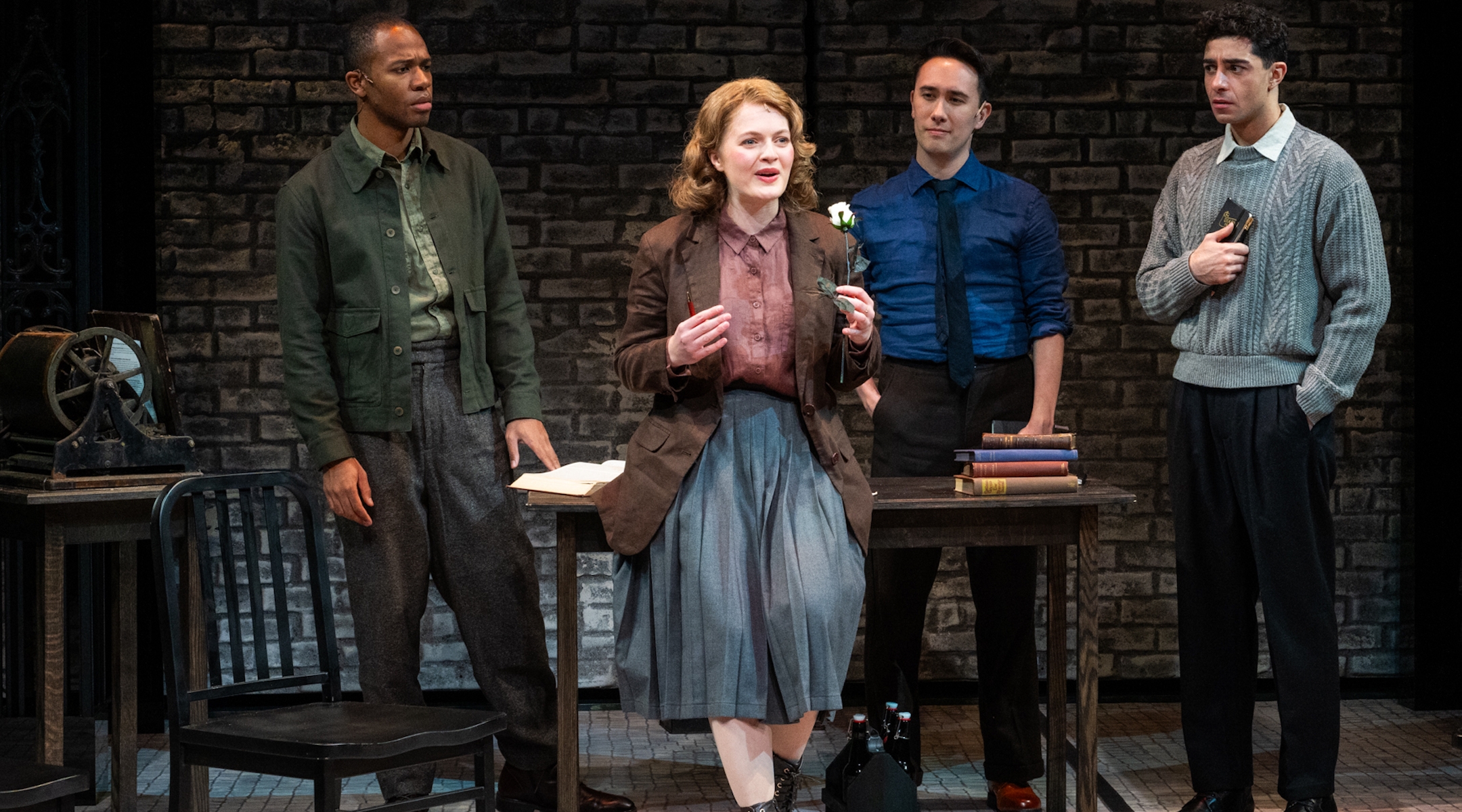(New York Jewish Week) — In the summer of 1942, a group of determined students and faculty at Germany’s University of Munich banded to speak out against the Nazi regime.
Led by Sophie Scholl and her older brother, Hans, they called themselves the White Rose. The fervently Christian siblings led the resistance group in sounding the alarm about the Nazis’ atrocities and the mass murder of Jews in Europe by dispersing anti-Nazi leaflets across German cities and embarking on a graffiti campaign throughout Munich and the surrounding region.
But in February 1943, less than a year after the White Rose’s inception, the Scholl siblings were caught scattering leaflets in the university’s main atrium. They were reported to the Gestapo and, just days later, at ages 21 and 24, they were executed by guillotine. Several other founding members were also executed for treason and many of their young collaborators were imprisoned.
Despite the tragic ending of the White Rose movement, their nonviolent acts of resistance have galvanized generations of young people to speak out. And now, the story has inspired “White Rose: The Musical,” a new 90-minute show that opens off-Broadway on Thursday.
The musical, starring Jo Ellen Pellman (Netflix’s “The Prom”) as Sophie Scholl and Mike Cefalo (Broadway’s “New York, New York”) as Hans Scholl, spotlights the courage and plight of the resistance group. “To me, it is the ultimate ally story,” the show’s creator, Brian Belding, told the New York Jewish Week. “We need more of those stories of people stepping out of the comfort and privilege that they have and actually standing up for people that are oppressed.”
Belding added that he dreamed of making a show about the White Rose since he first heard their story as a college student 35 years ago — he even wrote a screenplay for a movie at the time. “It was something that grabbed me from a young age, when I was basically the age of the students in the White Rose,” he said. “It was a story that I felt I should have known, but I didn’t.”
But life, as it often does, had other plans, and Belding became a high school history teacher in the Bay Area — where every year he taught his students about the bravery of the White Rose.
Teaching students year after year is what really “kicked me into action,” Belding told the New York Jewish Week.
“The students just always responded and they were engaged in stories, not just about the White Rose, but resistors, and especially young resistors, people they could identify with,” Belding said. “Too many history lessons are these guys in powdered wigs, you know, making speeches. We can study these dates and names of battles. But these were young people who were frustrated with what was going on, who were upset and angry and were trying to figure out a way to cope and, most importantly, to see if they could change it. That’s what my students identified with.”
Belding eventually decided to take time off from teaching in 2019 to pursue the project in earnest. He first tried to write a historical novel but found the idea came to life the most when he imagined it as a musical, so he set to work on writing the book and lyrics.
Though Belding is not Jewish, he said he worked carefully with Jewish dramaturg Emily White to make the show culturally, religiously and historically sensitive. With White’s guidance, Belding developed a (fictional) Jewish character in the White Rose who is forced to hide their identity in order to stay safe.
White said that working on the show as a Jew — and the fact that it is a true story — was “deeply important” to her. “When I have the ability to utilize historical documents and research in my process, helping to guide a story, it adds both a layer of authenticity and a unique responsibility in approaching the work,” she said.
White added that, while working on the script, she kept a quote from Holocaust survivor and “Night” author Elie Wiesel at top of mind: “The opposite of love is not hate, it’s indifference.”
“I have always been taught this is an essential part of being Jewish, but also an essential part of being a citizen of the world,” White said. “We are all bound in each other’s oppression, and we all have a responsibility to help stop oppression from happening.”
“The incredible efforts put forth by the young people in the White Rose, who weren’t direct targets of Nazi discrimination cannot be understated,” the dramaturg added. “These people could exist today, and make an impact.”
Belding concurs with White’s sentiments, saying the main message of the musical is to “stand up for what you believe in, even if it means standing alone” — quoting none other than Sophie Scholl.
“White Rose: The Musical” opens Thursday, Jan. 25 and runs for 12 weeks at Theatre Row (410 West 42nd St.) Tickets start at $37.50.
The New York Jewish Week brings you the stories behind the headlines, keeping you connected to Jewish life in New York. Help sustain the reporting you trust by donating today.





